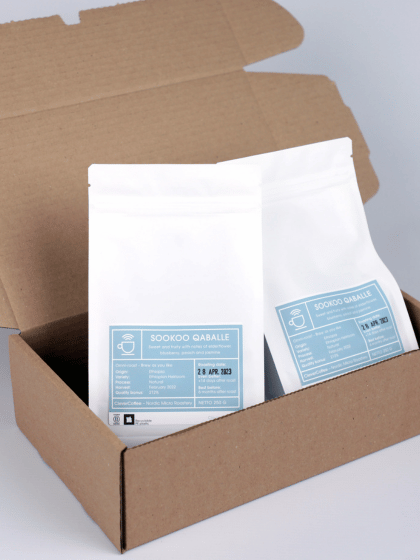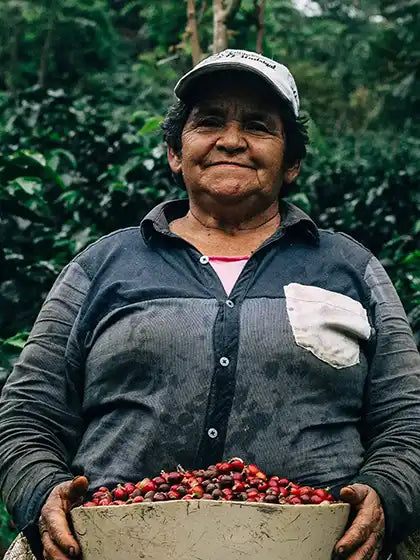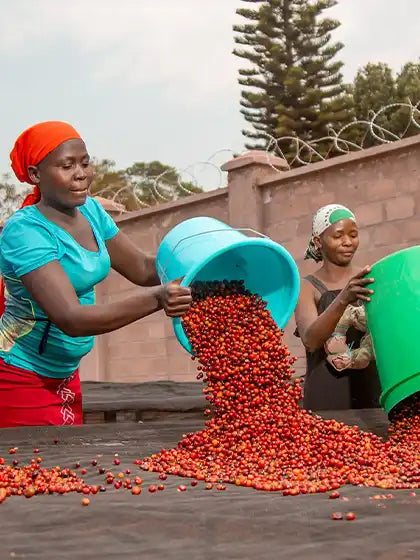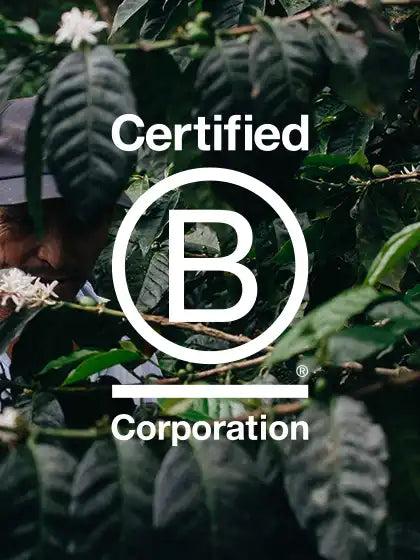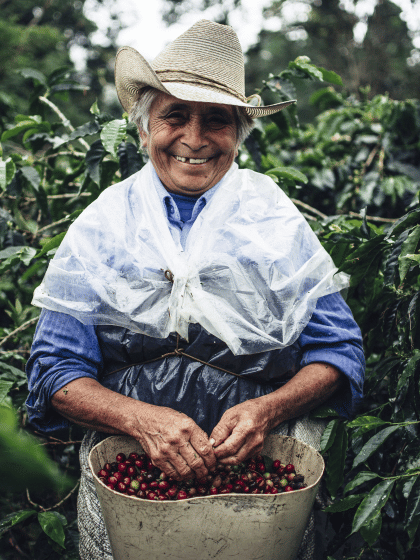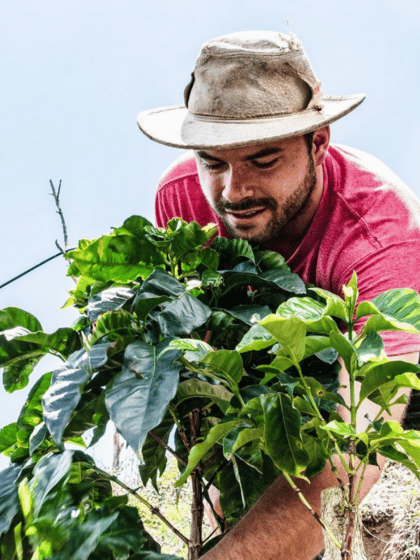Top Mutitu
A Juicy Kenyan Coffee
We heard you – since we ran out of Ruarai, we've been missing a Kenyan coffee too. To remedy that, we're bringing back an old favourite.
Top Mutitu has lots of sweetness reminiscent of mango, some familiar blackcurrant and a hint of lime. The coffee has a high flavour intensity and a really nice body – while maintaining transparency and balance.
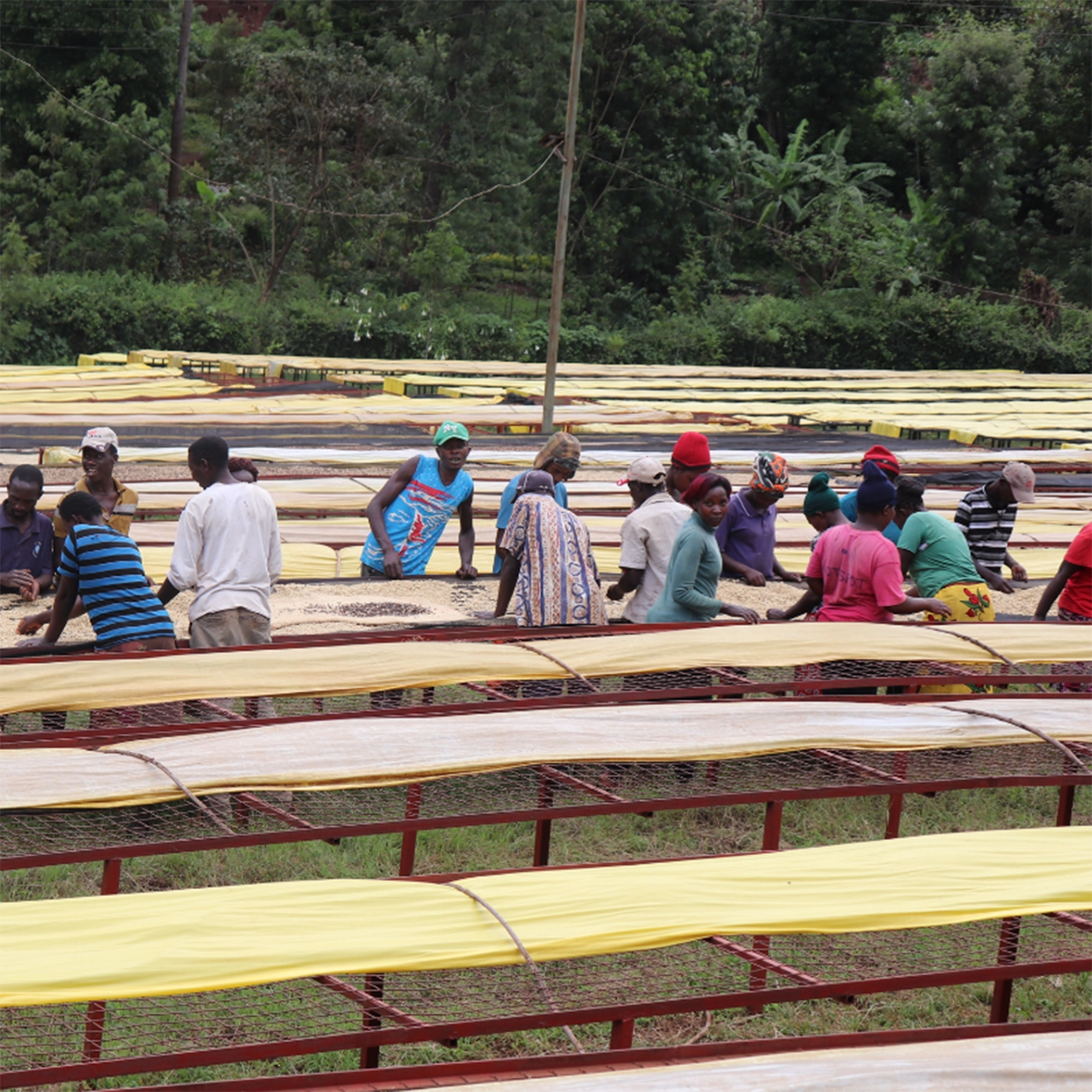
Since 1963
Quality and Care
Mutitu Coffee Factory is located in the Kirinyaga area at the foot of Mount Kenya.
The washing station was built in 1963, but in recent years they have worked hard to raise the quality of their coffee to the absolute highest level.
Recently, the washing station has changed production to ensure the area's water supply.
The farmers also plant trees such as banana and macadamia next to their coffee bushes to provide shade, promote biodiversity and benefit from the extra crop.
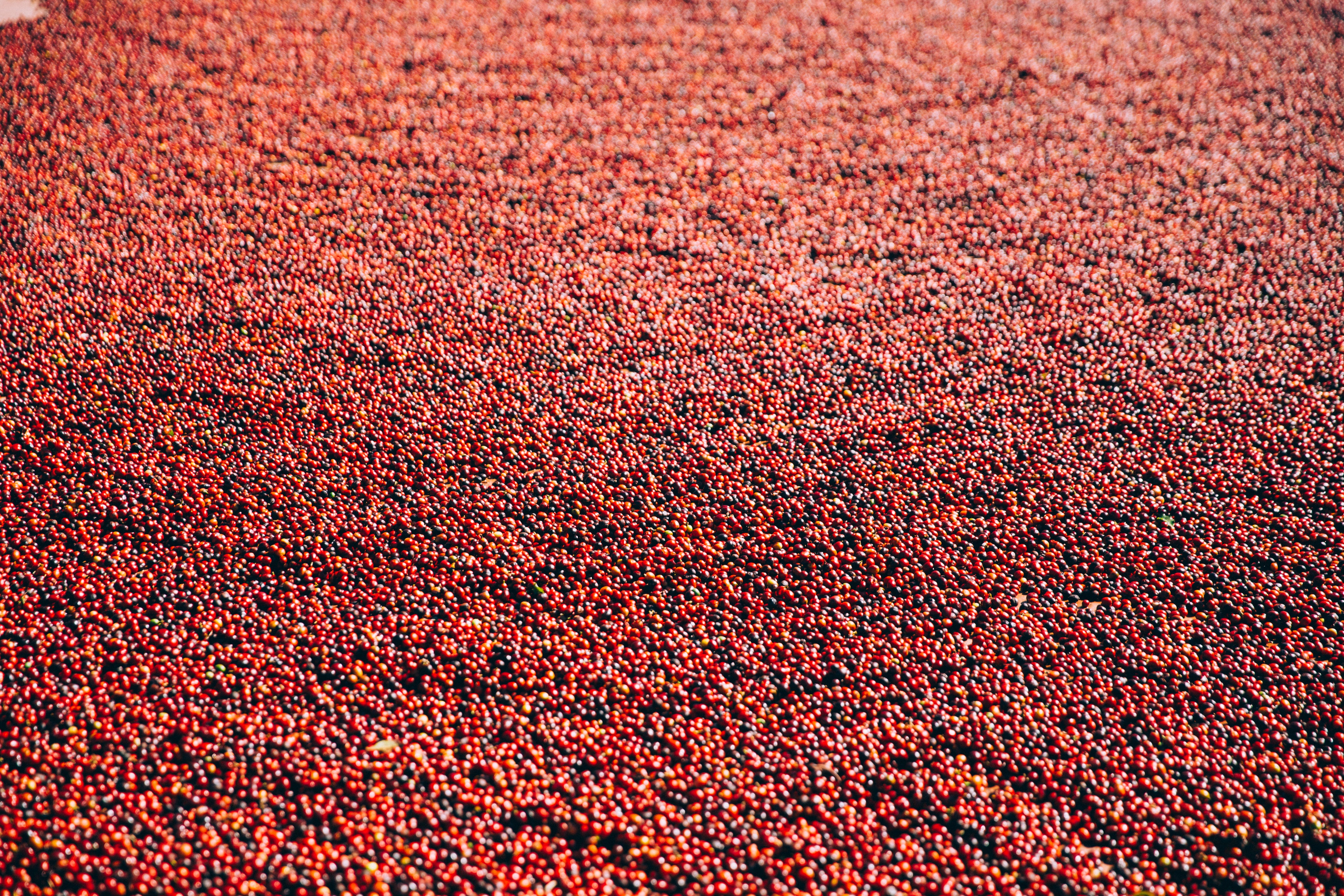
Specifications
Country: Kenya
Region: Kirinyaga
Variety: SL-28, SL-34, Batian, Ruiru 11
Process: Double washed
Altitude: 1420
Harvest: January 2022
Notes: Mango, blackcurrant and a hint of lime
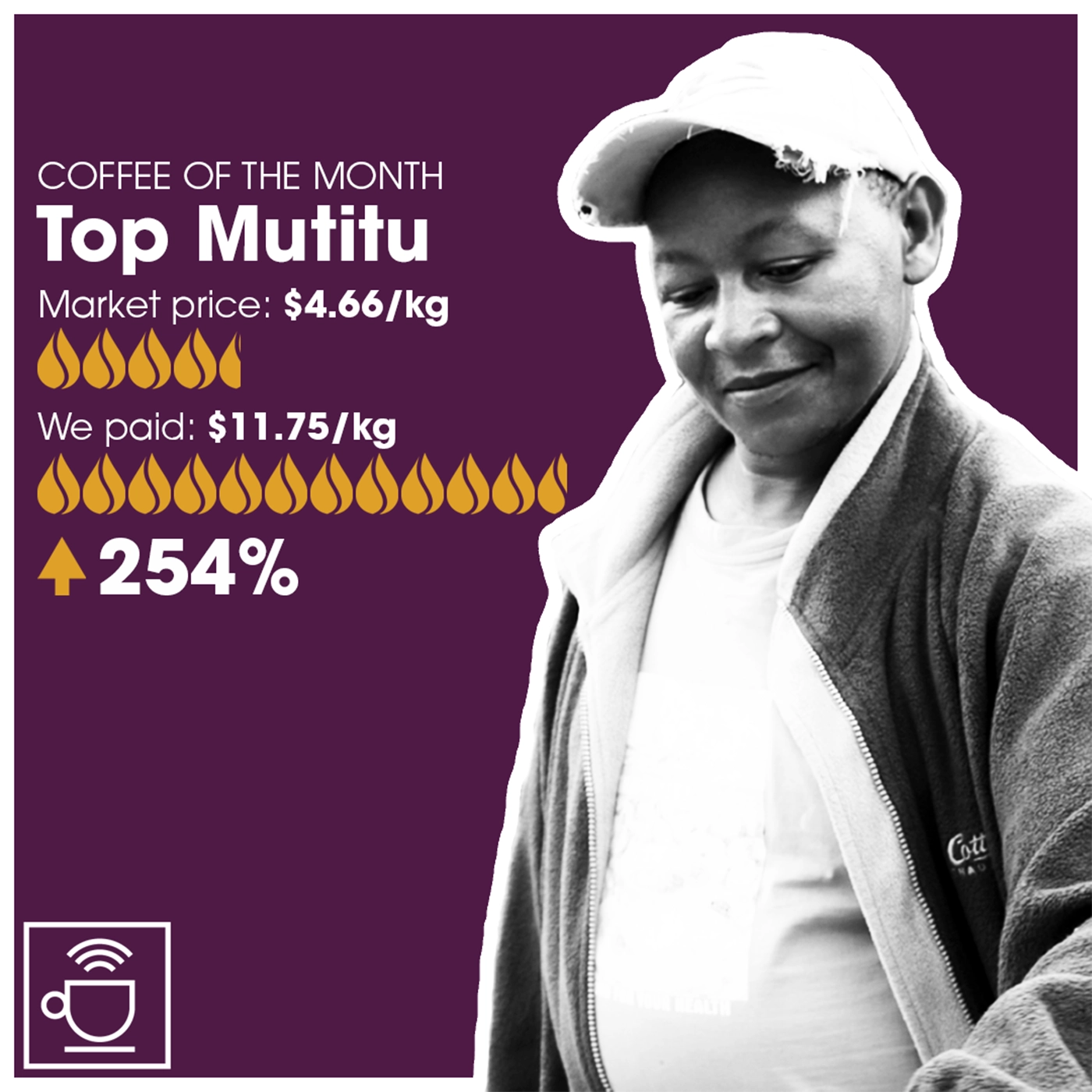
Our Purchase
We have paid $11.75/kg for the coffee (FOB).
The market price at the time of the contract was $4.66/kg.
This means we have paid 254% of the market price for this specific coffee.
Read more about why we pay more for our coffee here.
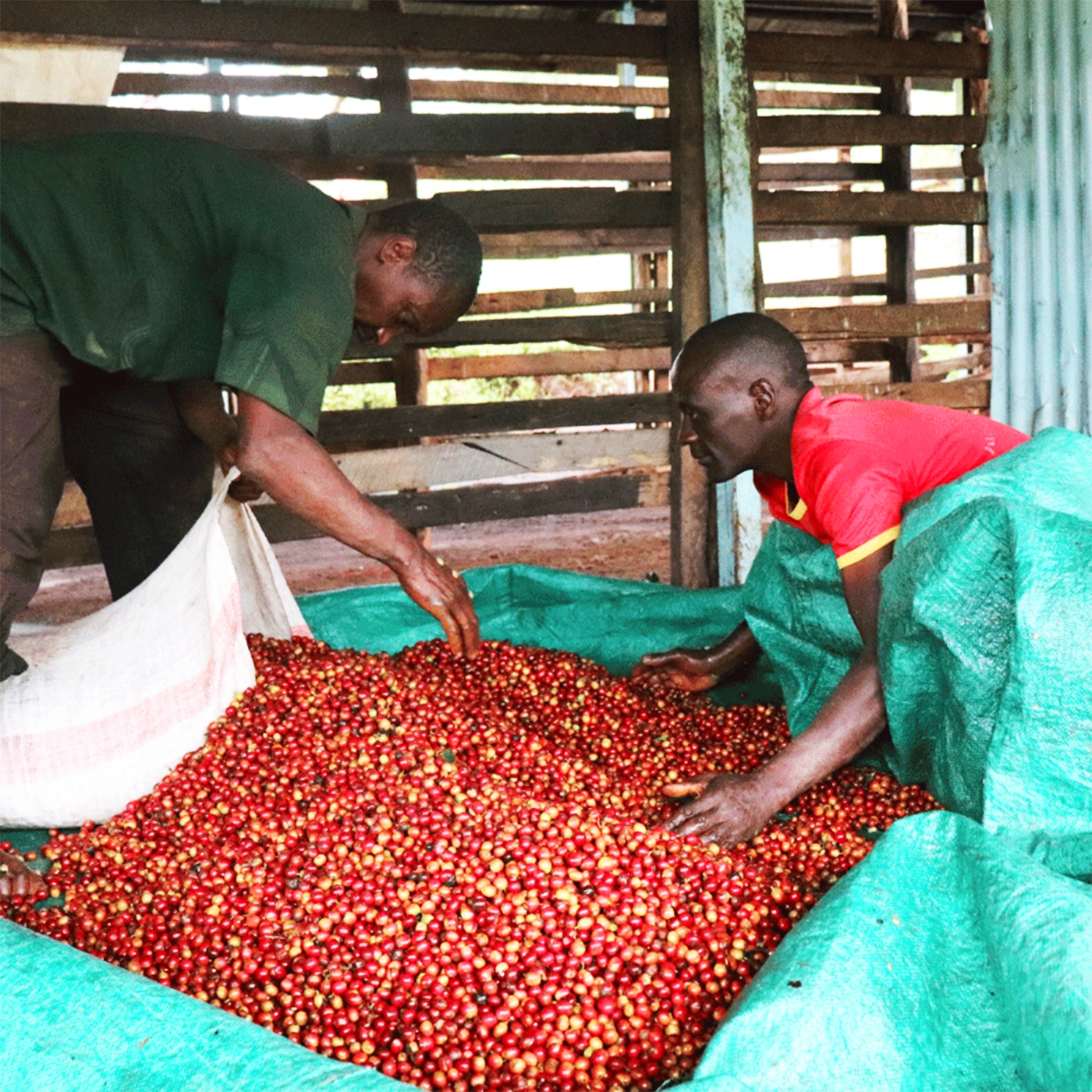
A Break With Tradition
Mutitu Coffee Factory, where Top Mutitu is produced, was created out of the need for local collaboration. The small coffee farmers in the nearby area – more than 1200 of them – stand together to ensure fair payments and fight against the risk of being cheated by middleman.
The washing station, run by Saweri Karimi, ensures that the small coffee farmers are paid as soon as they deliver their coffee cherries, rather than waiting until the coffee is ready – as is the tradition in Kenya.
They also benefit from other aspects of working together, such as sharing knowledge about agriculture and land management.

